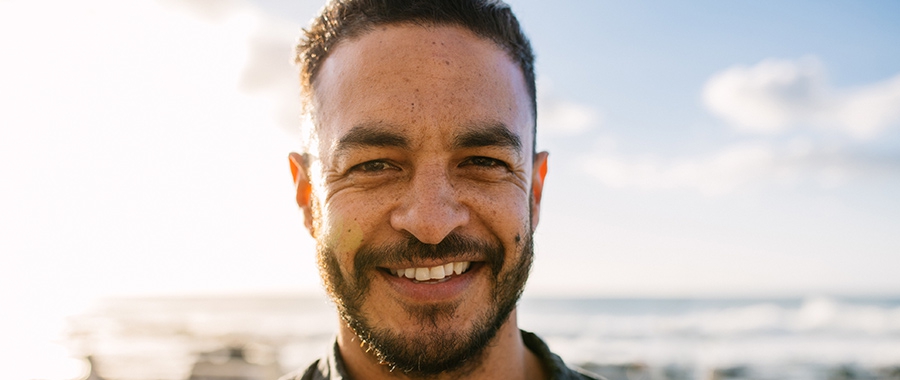The views expressed in our content reflect individual perspectives and do not represent the authoritative views of the Baha'i Faith.
You’ve certainly heard this one before: “be an example” for others. But what does that mean for the way others perceive us, and the way we perceive ourselves?
We tell older children to be an example to younger children, and we tell people who have done inspiring things that they serve as an example to all of us. But to be an example at all times, to all people, takes a whole new level of conscious effort in every aspect of our lives.
The Baha’i writings encourage us to make an effort to set an example with our entire lives—through action, not just words. In that way, we encourage others to join us in our effort to change the way we live our lives:
Therefore, you must without delay employ your powers in spreading the effulgent glow of the love of God and so order your lives that you may be known and seen as examples of its radiance. – Abdu’l-Baha, The Promulgation of Universal Peace, p. 8.
This can be a problematic mindset, however, if we believe that the way we behave should be the standard that everyone else follows. In society, being an icon or “influencer” has made an industry out of being an example, and people throw millions of dollars into it trying to imitate others’ style and behavior.
This is not the sort of example that Baha’is want to be—one where others idolize us for no good reason, or (more realistically) where we try so hard to be the standard by which others measure themselves, that our every action is insincere and born out of a desire to influence others, rather than better ourselves.
Abdu’l-Baha said that lack of humility will invalidate any good qualities we have:
If man be imbued with all good qualities but be selfish, all the other virtues will fade or pass away and eventually he will grow worse. – Abdu’l-Baha, Star of the West, Volume 4, p. 184.
Obviously, nobody can claim to live an ideal life—so how can we consider ourselves an example to others without falling into arrogance?
He must never seek to exalt himself above anyone, must wash away from the tablet of his heart every trace of pride and vainglory, must cling unto patience and resignation, observe silence, and refrain from idle talk. – Baha’u’llah, The Book of Certitude, pp. 264-265.
What the Baha’i teachings endeavor to create isn’t a community where we all look to one person or group of people and aspire to become like them. Instead, the Baha’is want to create a community where we draw on each other’s strengths, because we see those strengths as the reflection of the qualities of God that we are all learning to apply to our lives.
So we shouldn’t be striving to hide our imperfections under a mask of false perfection. Instead, it’s the joyful journey towards achieving that perfection that Baha’is value, and that can inspire others.
This becomes especially clear when we’re trying to set an example for those younger than us. As youth, we’re often called to be an example for those younger than us—in our morals and in our lifestyle. But it’s paternalistic to pretend to be perfect, and youth don’t gain a deeper understanding of how to cope with the challenges in life when they think that nobody else is dealing with those problems.
The idea that there are good people who never struggle with their own faults is very misguided, and can be very discouraging to any person facing challenges.
Instead of aspiring to be people who struggle with nothing at all, which is not a realistic view of life, Baha’is aspire to gain the qualities that allow us to overcome those challenges. In a community of people all struggling for those higher goals, seeing how others make an effort to better themselves every day, and face those challenges, is the most effective way to learn how to deal with them.
That is the kind of distinction Abdu’l-Baha encourages us to have in every aspect of our life:
For you I desire spiritual distinction—that is, you must become eminent and distinguished in morals. In the love of God you must become distinguished from all else. You must become distinguished for loving humanity, for unity and accord, for love and justice. In brief, you must become distinguished in all the virtues of the human world—for faithfulness and sincerity, for justice and fidelity, for firmness and steadfastness, for philanthropic deeds and service to the human world, for love toward every human being, for unity and accord with all people, for removing prejudices and promoting international peace. Finally, you must become distinguished for heavenly illumination and for acquiring the bestowals of God. – Abdu’l-Baha, The Promulgation of Universal Peace, p. 189.
Being an example for others is not about trying to make ourselves seem like we live a perfect life, but rather about making an effort to achieve distinguished moral and spiritual growth through the love of God, love towards humanity, and in all the virtues we work hard to acquire.
















Comments
Sign in or create an account
Continue with Googleor